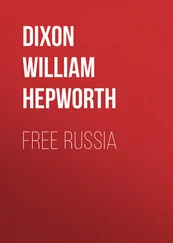Nikolai Nekrasov - Who Can Be Happy and Free in Russia?
Здесь есть возможность читать онлайн «Nikolai Nekrasov - Who Can Be Happy and Free in Russia?» весь текст электронной книги совершенно бесплатно (целиком полную версию без сокращений). В некоторых случаях можно слушать аудио, скачать через торрент в формате fb2 и присутствует краткое содержание. Год выпуска: 2005, Жанр: Поэзия, на английском языке. Описание произведения, (предисловие) а так же отзывы посетителей доступны на портале библиотеки ЛибКат.
- Название:Who Can Be Happy and Free in Russia?
- Автор:
- Жанр:
- Год:2005
- ISBN:нет данных
- Рейтинг книги:3 / 5. Голосов: 1
-
Избранное:Добавить в избранное
- Отзывы:
-
Ваша оценка:
- 60
- 1
- 2
- 3
- 4
- 5
Who Can Be Happy and Free in Russia?: краткое содержание, описание и аннотация
Предлагаем к чтению аннотацию, описание, краткое содержание или предисловие (зависит от того, что написал сам автор книги «Who Can Be Happy and Free in Russia?»). Если вы не нашли необходимую информацию о книге — напишите в комментариях, мы постараемся отыскать её.
Who Can Be Happy and Free in Russia? — читать онлайн бесплатно полную книгу (весь текст) целиком
Ниже представлен текст книги, разбитый по страницам. Система сохранения места последней прочитанной страницы, позволяет с удобством читать онлайн бесплатно книгу «Who Can Be Happy and Free in Russia?», без необходимости каждый раз заново искать на чём Вы остановились. Поставьте закладку, и сможете в любой момент перейти на страницу, на которой закончили чтение.
Интервал:
Закладка:
The women adore her,
They pray to her almost. 140
It's evident, then,
That the door of the peasant
Is easily opened:
Just knock, and be certain
He'll gladly admit you.
He's never suspicious
Like wealthier people;
The thought does not strike him
At sight of the humble
And destitute stranger, 150
"Perhaps he's a thief!"
And as to the women,
They're simply delighted,
They'll welcome you warmly.
At night, in the Winter,
The family gathered
To work in the cottage
By light of "luchina," [57] A wooden splinter prepared and used for lighting purposes.
Are charmed by the pilgrim's
Remarkable stories. 160
He's washed in the steam-bath,
And dipped with his spoon
In the family platter,
First blessing its contents.
His veins have been thawed
By a streamlet of vodka,
His words flow like water.
The hut is as silent
As death. The old father
Was mending the laputs, 170
But now he has dropped them.
The song of the shuttle
Is hushed, and the woman
Who sits at the wheel
Is engrossed in the story.
The daughter, Yevgénka,
Her plump little finger
Has pricked with a needle.
The blood has dried up,
But she notices nothing; 180
Her sewing has fallen,
Her eyes are distended,
Her arms hanging limp.
The children, in bed
On the sleeping-planks, listen,
Their heads hanging down.
They lie on their stomachs
Like snug little seals
Upon Archangel ice-blocks.
Their hair, like a curtain, 190
Is hiding their faces:
It's yellow, of course!
But wait. Soon the pilgrim
Will finish his story—
(It's true)—from Mount Athos.
It tells how that sinner
The Turk had once driven
Some monks in rebellion
Right into the sea,—
Who meekly submitted, 200
And perished in hundreds.
(What murmurs of horror
Arise! Do you notice
The eyes, full of tears?)
And now conies the climax,
The terrible moment,
And even the mother
Has loosened her hold
On the corpulent bobbin,
It rolls to the ground…. 210
And see how cat Vaska
At once becomes active
And pounces upon it.
At times less enthralling
The antics of Vaska
Would meet their deserts;
But now he is patting
And touching the bobbin
And leaping around it
With flexible movements, 220
And no one has noticed.
It rolls to a distance,
The thread is unwound.
Whoever has witnessed
The peasant's delight
At the tales of the pilgrims
Will realise this:
Though never so crushing
His labours and worries,
Though never so pressing 230
The call of the tavern,
Their weight will not deaden
The soul of the peasant
And will not benumb it.
The road that's before him
Is broad and unending….
When old fields, exhausted,
Play false to the reaper,
He'll seek near the forest
For soil more productive. 240
The work may be hard,
But the new plot repays him:
It yields a rich harvest
Without being manured.
A soil just as fertile
Lies hid in the soul
Of the people of Russia:
O Sower, then come!
The pilgrim Ióna
Since long is well known 250
In the village of "Earthworms."
The peasants contend
For the honour of giving
The holy man shelter.
At last, to appease them,
He'd say to the women,
"Come, bring out your icons!"
They'd hurry to fetch them.
Ióna, prostrating
Himself to each icon, 260
Would say to the people,
"Dispute not! Be patient,
And God will decide:
The saint who looks kindest
At me I will follow."
And often he'd follow
The icon most poor
To the lowliest hovel.
That hut would become then
A Cup overflowing; 270
The women would run there
With baskets and saucepans,
All thanks to Ióna.
And now, without hurry
Or noise, he's beginning
To tell them a story,
"Two Infamous Sinners,"
But first, most devoutly,
He crosses himself.
Come, let us praise the Omnipotent! 280
Let us the legend relate
Told by a monk in the Priory.
Thus did I hear him narrate:
Once were twelve brigands notorious,
One, Kudeár, at their head;
Torrents of blood of good Christians
Foully the miscreants shed.
Deep in the forest their hiding-place,
Rich was their booty and rare;
Once Kudeár from near Kiev Town 290
Stole a young maiden most fair.
Days Kudeár with his mistress spent,
Nights on the road with his horde;
Suddenly, conscience awoke in him,
Stirred by the grace of the Lord.
Sleep left his couch. Of iniquity
Sickened his spirit at last;
Shades of his victims appeared to him,
Crowding in multitudes vast.
Long was this monster most obdurate, 300
Blind to the light from above,
Then flogged to death his chief satellite,
Cut off the head of his love,—
Scattered his gang in his penitence,
And to the churches of God
All his great riches distributed,
Buried his knife in the sod,
Journeyed on foot to the Sepulchre,
Filled with repentance and grief;
Wandered and prayed, but the pilgrimage
Brought to his soul no relief. 311
When he returned to his Fatherland
Clad like a monk, old and bent,
'Neath a great oak, as an anchorite,
Life in the forest he spent.
There, from the Maker Omnipotent,
Grace day and night did he crave:
"Lord, though my body thou castigate,
Grant that my soul I may save!"
Pity had God on the penitent, 320
Showed him the pathway to take,
Sent His own messenger unto him
During his prayers, who thus spake:
"Know, for this oak sprang thy preference,
Not without promptings divine;
Lo! take the knife thou hast slaughtered with,
Fell it, and grace shall be thine.
"Yea, though the task prove laborious,
Great shall the recompense be,
Let but the tree fall, and verily 330
Thou from thy load shalt be free."
Vast was the giant's circumference;
Praying, his task he begins,
Works with the tool of atrociousness,
Offers amends for his sins.
Glory he sang to the Trinity,
Scraped the hard wood with his blade.
Years passed away. Though he tarried not,
Slow was the progress he made.
'Gainst such a mighty antagonist 340
How could he hope to prevail?
Only a Samson could vanquish it,
Not an old man, spent and frail.
Интервал:
Закладка:
Похожие книги на «Who Can Be Happy and Free in Russia?»
Представляем Вашему вниманию похожие книги на «Who Can Be Happy and Free in Russia?» списком для выбора. Мы отобрали схожую по названию и смыслу литературу в надежде предоставить читателям больше вариантов отыскать новые, интересные, ещё непрочитанные произведения.
Обсуждение, отзывы о книге «Who Can Be Happy and Free in Russia?» и просто собственные мнения читателей. Оставьте ваши комментарии, напишите, что Вы думаете о произведении, его смысле или главных героях. Укажите что конкретно понравилось, а что нет, и почему Вы так считаете.











